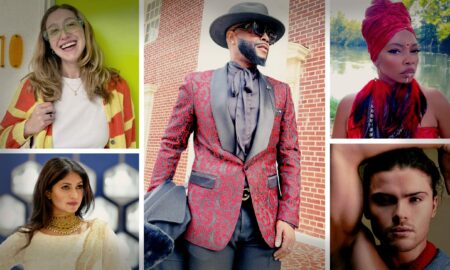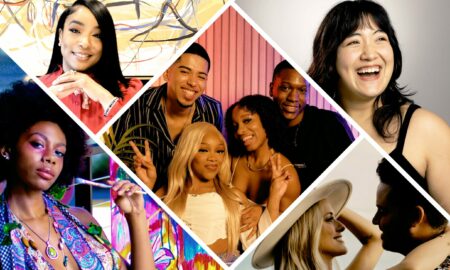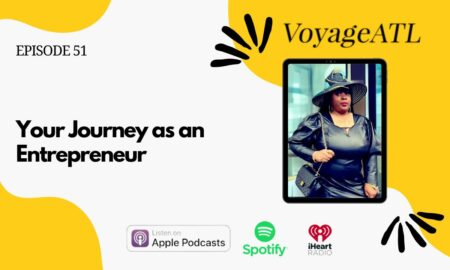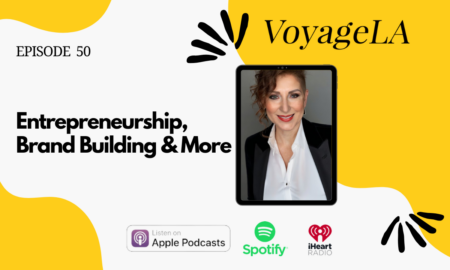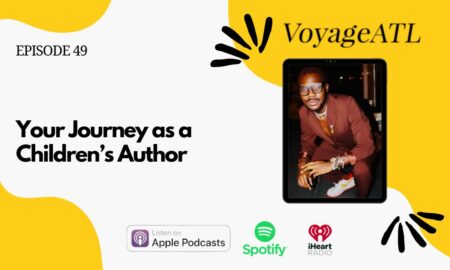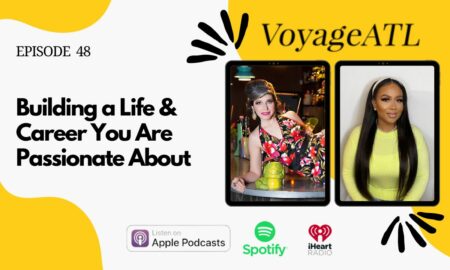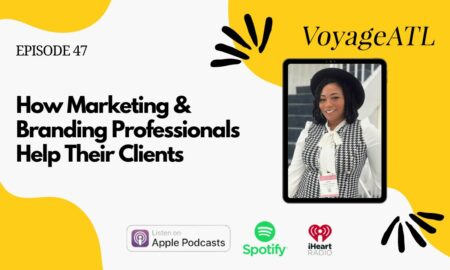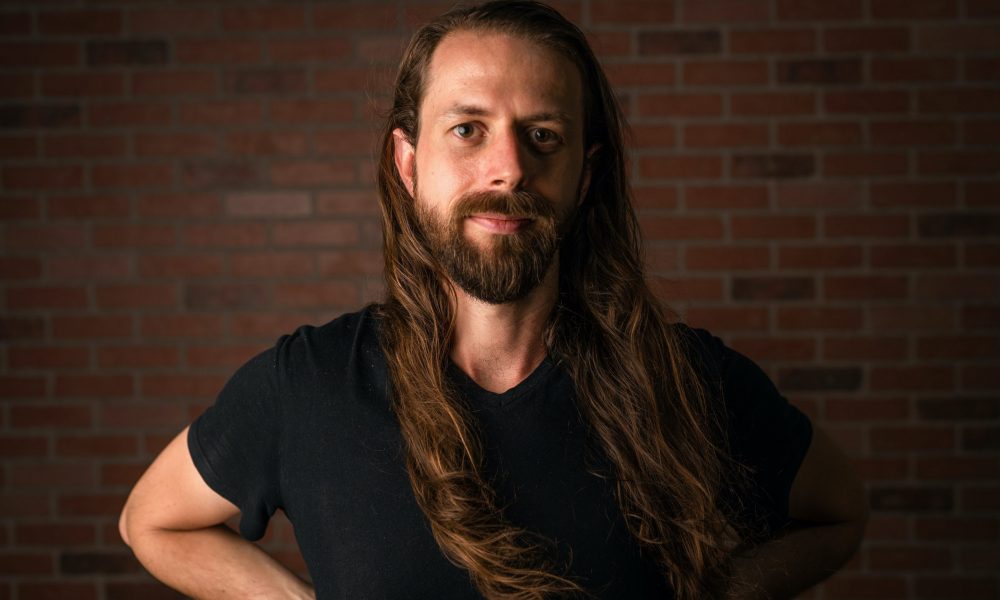

Today we’d like to introduce you to Colin Agnew.
Colin, please share your story with us. How did you get to where you are today?
I’ve been finding ways to make music since I was seven years old. My earliest memories of it were singing with my mother around the piano, and convincing her to teach me to play. For as long as I can remember, creating art has been all I’ve wanted to do, and I was always amazed by how many ways there were to do it. I sketched a lot, made a lot of things with wood, and attempted to design the perfect Rube Goldberg machine. But by the time I was probably ten I had pretty much dedicated all my energy to music. A deep curiosity for people and the ways they express and commune has been the fuel by which I’ve tried to curate an artful mind, that which seeks a special connection with all the things that inspire us. Whether directly or indirectly, this has informed all that I have worked on throughout my life. Many years I spent formally studying percussion and piano, the traditions of Western music theory and ensemble playing, and eventually received a degree in jazz performance on the drums. While those were extraordinarily formative experiences, I think what guided me along through them was a bit more self-determined. I wanted to experience the uniqueness of people through their various musical arts, and I wanted to use this to sculpt my own creative voice. There was a point at which I began to notice the narrowing path that higher music education inevitably wanted me to remain walking, and I became reactivated in my need to really create art for myself, on my own path. So I kept searching for new musical challenges in tandem with formal education, and I listened to everything I could find. I spent years deeply immersed in music from across Latin America, where creative traditions are as rich and plentiful as anywhere on the planet. In particular, I found a deep passion for the percussion languages of Brazil and the Caribbean. In these regions, much like in the United States, hundreds of completely novel forms of expression have emerged through many generations of rapid cultural integration. These sounds have always enchanted me. Such vastly different people finding the root of their common humanity and expressing it with sound is one reason why music is so inherently important. Of all the ways humans express themselves, music seems to me to have the most direct connection with the big emotions we all will likely encounter, and that makes it relevant to everyone. So with all that in mind, I’ve been playing music professionally in a huge range of contexts for the last 15 years. Although I’ve played just about any kind of gig you can imagine (though I wouldn’t advise anyone to try), my primary work has been as a hired drummer and percussionist for small jazz ensembles, independent artists and songwriters, and more acoustic-oriented bands. I’ve been a session musician for hundreds of projects, traveled overseas several times, and played in nearly every state in the country. It’s been a taxing but really rewarding ride. What I hope has been true is that throughout all the years, and all the people I’ve met and created with, and all the music I’ve made so far, maybe I have grown into a more mindful and compassionate person. Cultivating mindfulness and creating honest, good music with other artists is what I’ve always wanted to do.
Has it been a smooth road?
I wouldn’t describe it as smooth, but who would? I certainly didn’t have my hand held, or get fast-tracked to fame and wealth – obviously. I was fortunate to not have too many real obstacles as a young drummer. My parents allowed me to play as loud as I wanted for as long as I wanted, and to listen to pretty much anything. Their patience was superhuman, actually. I also had mentors who really inspired me to stay curious and open-minded, and to think about musicianship beyond the instruments and the theory. They would focus on finding unique perspectives as curious individuals in all areas of life rather than simply on the notes we play as musicians. They taught me to always listen, and that finding a common accord with the people you play with/for is essential to making good music. This approach really helped guide me through tougher times. I found sanctuary and peace in making music that I didn’t find in almost any other social environment growing up. I was always the outsider until I got to make music with people. Still there were tough moments later, and I’d have to make the decision, again and again, of whether I wanted to pursue a more stable lifestyle or a more creative and independent lifestyle. College level music education definitely wanted me to focus more on stability, but I have always wanted to live my life according to my own principles, on my own time, and within my own framework. Making music has always been more important than stability. Most of the struggles that I faced were more internal, like simply waking up everyday and trusting all the little decisions you have to make for a totally precarious career would somehow workout. Leaning into the idea that I was always doing what I was supposed to be doing really helped me stay the course. However, even in the professional world there are forces that influence and manipulate our ideas of creative success, and the industry rewards only certain flavors of it. These days, you’re more likely to get a well-paying gig with a tribute band than with an original act. I’m not throwing shade at any working musicians out there. I’m happy for anyone who can make a living in the arts. But this new hierarchy which often values nostalgia over development – or recreation over creation – is damaging to the foundation of why we do what we do, and forgets a large reason why music is important. I want to create, and I want to connect with people primarily through creating something novel, not just familiar. Because our commodified culture doesn’t show the same kind of love to artists who are really striving to advance our collective experience, choosing to focus on original music often means spending some years being dirt poor. And I certainly was. It still means that many of the original acts with whom I perform will get passed over or low-balled by venues and festivals in favor of a group that plays something everyone has heard before. It’s just a numbers game for many of the decision-makers in the industry, which is disheartening, yet perhaps understandable. Everyone has to make money. But there is little financial reward anymore for working hard at creating something original, unless you are really selling something else. But I don’t bemoan my career in any way. Money nor fame are my measurements of real success. Through years of perseverance I’ve managed to acquire some stability from this lifestyle, and I’ve remained constant with my intentions. For me, staying true to myself in spite of obstacles and external manipulation is the only real measure of success.
So let’s switch gears a bit and go into the La Gazza Studio story. Tell us more about the business.
My business is that I am an independent hired musician, but I now also operate a small studio which affords me a lot of opportunities, especially in recent months. Being an independent musician naturally requires wearing many hats, and one hat I truly enjoy wearing is that of a producer. There are tons of people like me out here, and most people don’t know what it is exactly that we do. I’ve sat through enough Thanksgiving dinners to know the common questions most people have: Am I in a band? Yes, lots of them. Do I write songs? Sometimes, yes, but not all musical ideas are “songs.” How do I know what to play? I don’t know – I make it up. How do I make money? That’s the life I’ve managed to lead as a professional freelancer for longer than many careers, and I’ve always paid my bills. A friend aptly described this lifestyle as being like Tarzan, swinging through the canopy and always trusting that a vine will appear just when you need it. Freelancers like myself spend years creating relationships with people, as that is exactly what our business means. Out of those relationships come more relationships and through that web of connections we get called on to play music with people in all sorts of situations. My profession has primarily been as a touring and session drummer and percussionist, and that will always be a large part of what I do. As simply a hired performer I have sometimes felt a bit limited by how much I am allowed to offer up to the broader musical scope of a project. Working with artists as a creative producer and engineer in my own studio is my way of increasing that allowance. It is almost inevitable for session musicians who want to meet the increased demand for completely remote tracking to build their own studio space, but I have also wanted to create an environment where I can inspire other artists to collaborate and help cultivate their art. Lately, I spend most of my days creating high-quality drum and percussion tracks for artists from all over the world. It is a real joy to be able to take a song or a theme or a soundscape and find my own sonic path within it. When tracking myself, I am often working alone, but technology allows us to communicate in real-time from just about anywhere, so the sharing of ideas and the creative process is really not that much different. I also record other solo artists, full bands, and a variety of creatives who want my help as a producer or an engineer. This is almost always a creative collaboration, wherein I look for the central points of inspiration in a project, and build from there. Although I personally have my own tastes, what I value more than anything in an artist is an open mind when it comes to making something personally meaningful, honest, and emotionally provocative. The abundance of home studios has been concurrent with the closing of many large studios, and while it is a shame to see so much of that history come to a close, I do believe that we must adapt and change. The world is very different than it was 50 years ago, as are the ways we all record and consume music. I’m hopeful for a musical future that will continue to strive for excellence and honesty in spite of the technological advances that have made the production side of it so much more accessible.
How do you think the industry will change over the next decade?
That’s quite an opportune question, given the state of the world in a pandemic. I see massive shifts already happening. The industry as a whole has already undergone so many changes in the last 20-25 years, but now with the closure of so many small venues and the erasure of most of our performing income, the industry has been severely crippled. Much of what I see parallels the broader American wealth gap, in that there is a huge disparity between the small percentage of entertainers whose careers get massive investments from big corporate industry giants… and the rest of us. Sure, there are artists who work their way to fantastic popularity and financial success through sheer drive and talent, but that is in no way a guarantee. Plenty of us work constantly, day in and out, to create something new and to engage with audiences in creative ways, yet still struggle. Corporations like Spotify, on whom most music consumers rely these days, say that musicians who are not making sustainable income from streaming platforms just simply aren’t working hard enough. This blatant falsehood is worthy of a million eye-rolls anyway, but truthfully the entertainers out there who get the most from those platforms are still not seeing a substantial income from their millions of plays. They simply don’t need it, because quite often they are supported by a swath of investors – sponsors, record labels, and even those same streaming corporations – who take at least some creative control and promote the bejesus out of them. For industry people to suggest that the work artists do is equivalent to the income they bring in is simply a false comparison. Hard work does not necessarily equal sustained stability, especially in an industry as fluid and subjective as the music and arts industry. As a result, most of us working musicians have had to adopt a new standard of success, which is not a bad thing. Within the current climate, I see a lot more artists vying for new, more sustainable, and more equitable means of music production, consumption, and compensation. People say that music is not valued as much as it was 30-40 years ago, but that isn’t totally accurate. Most people just don’t see its value as monetary anymore, which brings up an interesting idea. Was music more valuable when it was looked at as a purchased commodity, or is it more valuable now that it is literally price-less? I think there are ways to use this to our advantage, eventually. But somehow our culture has to be incentivized to allow the artists who are not bankrolled by corporations to still be able sustain themselves and create on their own terms. I think the streaming platform itself is not going anywhere, and the average music lover will still opt to have free, immediate access to whatever they want to hear. But I hope that more powerful organizations and government programs will realize, especially post-pandemic, the inherent value in what we do. The creators who are out there dedicating their lives to giving our current existence a unique voice have been essential to our species forever, and it’s imperative to find ways to provide them with a sustainable leg to stand on. I try to be optimistic because the alternative is rather bleak, and not so far-fetched. Small businesses need patronage and support. That goes for smaller venues, small studios, and the artists they work with. They are the ones doing it, putting their time and energy and investments into something that is not only good for us now, but is part of what makes us human.
Contact Info:
- Website: www.colinagnew.com
- Phone: 770-653-4649
- Email: colinaagnew@gmail.com
- Instagram: @colinagnew
- Facebook: www.facebook.com/mr.colin.agnew





 Image Credit:
Image Credit:
Brock Scott
Stephanie Heath
Brian Hansen
Aaron Schorch
Suggest a story: VoyageATL is built on recommendations from the community; it’s how we uncover hidden gems, so if you or someone you know deserves recognition please let us know here.












